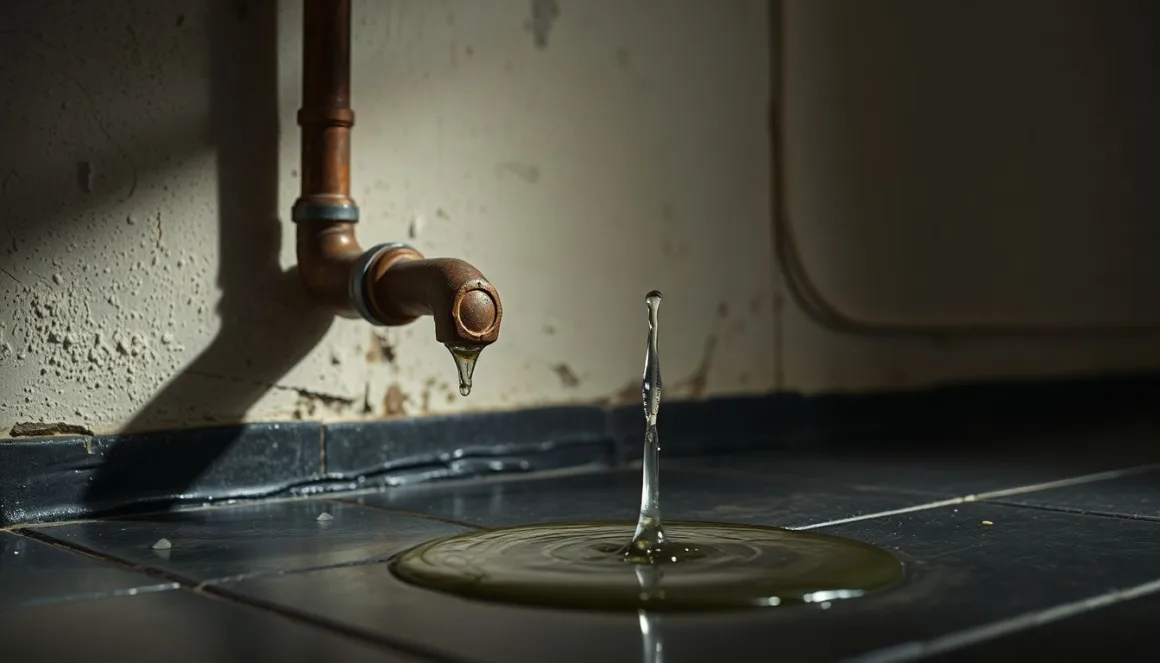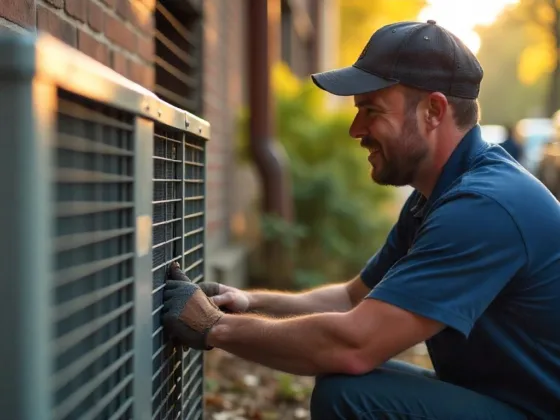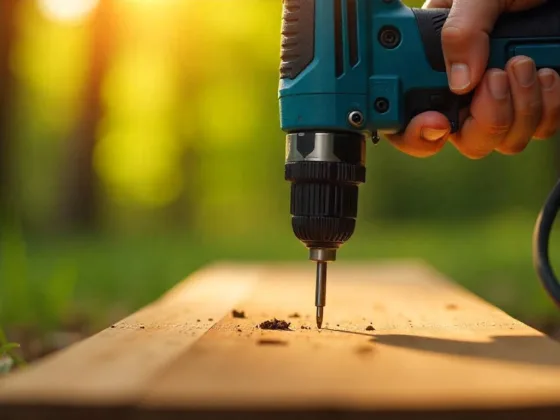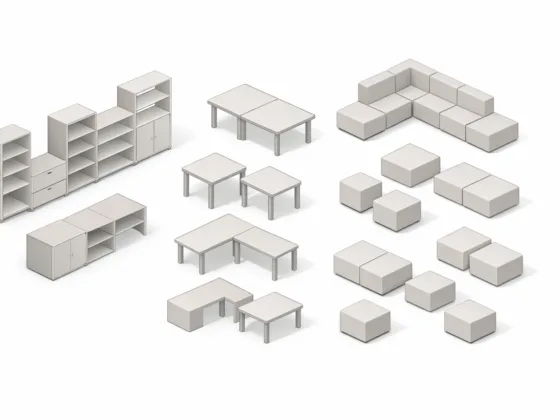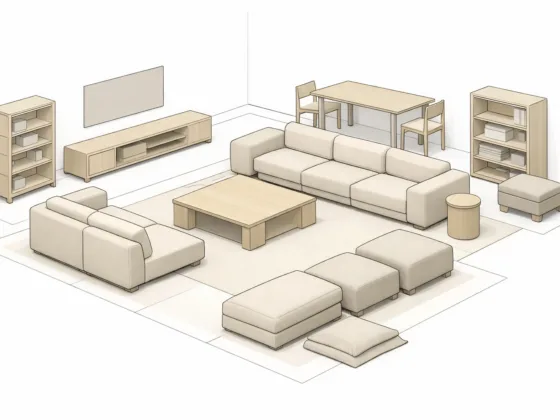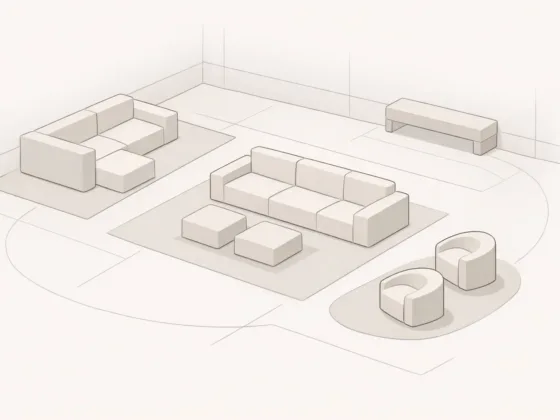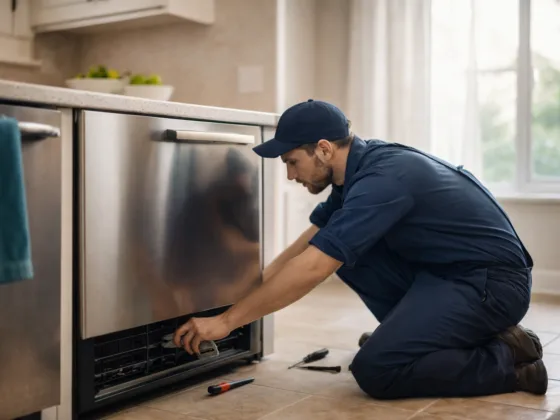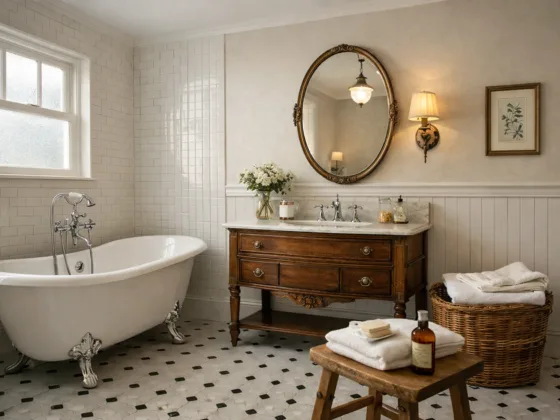Plumbing systems don’t last forever, and in many cases, they start deteriorating long before homeowners realize it. While obvious leaks and slow drains are warning signs, more subtle indicators can reveal aging pipes before they become major problems.
Paying attention to water pressure fluctuations, unexplained increases in water bills, or even changes in water color can help detect issues early. Consulting a professional plumber for routine inspections can prevent hidden leaks and structural damage before they escalate into costly repairs.
Signs Your Plumbing Is Failing
In addition to common problems like leaks and clogs, there are other warning signs that you shouldn’t ignore.
- If your hot water runs out more quickly than it used to, sediment buildup in the water heater could be reducing efficiency and straining pipes.
- Water that smells different at certain times of the day might indicate bacterial growth inside old pipes or an interaction between municipal treatment chemicals and aging plumbing.
- When toilets and drains “gurgle” even when not in use, it can signal a sewer venting issue or a developing blockage.
- If you notice warm spots on your floor, particularly near plumbing fixtures, there could be a slab leak beneath your foundation.
These issues often go unnoticed until they cause significant damage, making early detection essential.
How Pipe Materials Affect Longevity
Different pipe materials age in different ways, which impacts their long-term performance.
Copper Pipes
- Lifespan: Over 50 years
- Advantages: Resistant to corrosion
- Disadvantage: Vulnerable to pinhole leaks in areas with acidic water
PEX Pipes
- Lifespan: Similar to copper
- Advantages: Flexible and resistant to scale buildup
- Disadvantage: Can degrade with UV exposure
Galvanized Steel Pipes
- Lifespan: Varies, used in older homes
- Disadvantage: Corrode from the inside out and can restrict water flow over time
CPVC Pipes
- Lifespan: Between 50 and 75 years
- Advantages: Resist chlorine damage
- Disadvantage: Become brittle with age
Cast Iron Sewer Lines
- Lifespan: Up to a century
- Disadvantage: Internal corrosion is a common issue
Performance matters just as much as lifespan. Here are some key points:
- PEX’s flexibility makes it ideal for cold climates, reducing the risk of burst pipes, though rodents have been known to chew through it.
- Copper has natural antimicrobial properties, making it a great choice for drinking water, but it is prone to leaks in areas with aggressive water chemistry.
- Galvanized pipes, in addition to rusting internally, can collect lead residue if connected to older municipal supply lines.
Choosing the right material involves considering not just durability but also environmental factors like water quality and climate.
Many homeowners underestimate the impact of water quality on their plumbing system’s longevity.
- Hard water causes scale buildup inside pipes, reducing flow and increasing strain on fixtures.
- Acidic water (low pH) eats away at metal pipes, leading to leaks.
- High chlorine levels, commonly found in municipal water, weaken materials like PEX and CPVC over time.
Even high iron content can accelerate rust formation in older metal pipes.
The damage often happens faster than expected:
- Acidic water doesn’t just dissolve metal pipes—it can degrade rubber seals and fittings, leading to leaks at connection points.
- Hard water isn’t only about mineral buildup; it also makes soap less effective, increasing soap scum in pipes and accelerating clogs.
- Chloramine, a chlorine-ammonia mix used in city water treatment, can wear down rubber washers and PEX fittings.
- Even softened water, while beneficial in some ways, can increase pipe corrosion by removing calcium and magnesium, which naturally protect against acidic water.
Investing in water treatment systems—such as water softeners, pH neutralizers, or whole-home filtration—can dramatically extend the lifespan of a plumbing system.
Everyday Habits That Wear Out Pipes
Daily routines have a bigger impact on plumbing than many people realize. Here are some habits that can wear out your pipes:
- Frequent hot water use: Using hot water frequently expands and contracts pipes, weakening joints over time.
- High water pressure: If your water pressure is above 60 psi, it can stress pipes and fixtures, making leaks more likely.
- Chemical drain cleaners: While they may seem like a quick fix, chemical drain cleaners can corrode pipes from the inside, especially in older homes.
- Overloading garbage disposals: Putting too much food waste down the garbage disposal can lead to grease and food buildup, increasing the risk of blockages.
- Small, frequent dishwasher and laundry loads: Running small loads in your dishwasher and washing machine causes more on-off cycles for valves, which can wear them out prematurely.
- Using the wrong soap in high-efficiency appliances: If you use regular soap instead of HE detergent in your high-efficiency washer, it can create excess suds that back up into drain lines and cause clogs.
Better Alternatives
Instead of relying on these habits, consider making some simple changes:
- Lower the temperature on your water heater to save energy and reduce strain on your plumbing system.
- Use natural cleaners like baking soda and vinegar instead of chemical drain cleaners to avoid damaging your pipes.
- Install a pressure regulator if you have high water pressure issues to protect your plumbing fixtures.
These small adjustments can go a long way in extending the lifespan of your plumbing system.
Bad Installation vs. Natural Aging
Even the most durable pipes won’t last if they weren’t installed correctly. Poor installation practices, such as improper pipe slopes or unsecured fittings, can lead to chronic drainage issues and premature failures.
Mixing incompatible metals, like copper and galvanized steel, accelerates corrosion due to galvanic reaction.
Common Oversights in Pipe Installation
- PVC drain pipes installed with too much slope, causing water to move too quickly and leave solids behind, leading to clogs.
- Hand-tight connections on flexible hoses may seem adequate, but improper tightening can lead to slow leaks that go unnoticed until major damage occurs.
- Inadequate venting in older homes, particularly those built before the 1990s, leading to slow drainage, sewer gas smells, and pressure imbalances that strain pipes over time.
Plumbing Problems You Don’t See
Some plumbing problems can cause significant damage without being immediately visible. Here are a few common issues to be aware of:
- Slab Leaks: These occur when pipes beneath your home’s foundation start leaking. Slab leaks can lead to structural damage and significantly increase your water bills.
- Sewer Line Problems: If you’re experiencing slow or recurring drain clogs, it may indicate an issue with your sewer line rather than just a simple blockage.
- Hidden Leaks: Musty smells or signs of mold and mildew in your home, even without visible water damage, could suggest small leaks inside walls or other concealed areas.
- Toilet Issues: Toilets that randomly refill or flush on their own (known as phantom flushing) can waste a substantial amount of water over time.
Regular plumbing inspections are crucial for identifying these hidden problems before they escalate into costly repairs.
Preventative maintenance also includes checking key plumbing components:
- A stuck or broken main shutoff valve can turn a minor leak into a flood if it can’t be turned off in an emergency.
- Old washing machine hoses are another risk—standard rubber hoses weaken over time and can burst unexpectedly. Upgrading to stainless steel braided hoses is an easy, inexpensive safeguard.
- Water heaters also require attention; if the anode rod inside is completely deteriorated, the tank itself starts rusting, leading to unexpected failure.
- A neglected sump pump can also become a major liability during heavy rains, leaving basements vulnerable to flooding.
Simple Maintenance for Longer-Lasting Pipes
Preventative care is far cheaper than emergency repairs. Here are some simple maintenance tips to keep your pipes in good condition:
- Install a whole-home water filter: This can protect against sediment, chlorine, and pH imbalances that degrade pipes.
- Flush the water heater annually: This removes sediment buildup and improves efficiency.
- Check for leaks regularly: Inspect under sinks, behind appliances, and in basements at least twice a year to catch small problems before they escalate.
- Keep water pressure in check: Ideally, it should be between 40-60 psi to reduce stress on pipes and fixtures.
- Drain outdoor spigots before winter: Even frost-proof models can burst if connected pipes aren’t properly sloped.
- Run rarely used taps once a month: This prevents bacteria buildup and corrosion from stagnant water.
- Invest in a smart leak detection system: Such a system automatically shuts off the water in case of a major leak, preventing thousands in damages.
Repair or Replace? Knowing When It’s Time
If plumbing issues are frequent, it may be time to consider replacement. Pipes nearing the end of their expected lifespan, ongoing leaks, and water quality problems due to corrosion are strong indicators.
Home renovations present an opportunity to replace old plumbing while walls are open, saving future labor costs. However, for minor leaks in newer pipes, faulty valves, or isolated clogs, targeted repairs often make more sense.
Knowing when to repair versus replace can save both time and money. Patching a leak in old galvanized pipes is a temporary fix; the whole run will likely fail soon.
Replacing a single cast iron drain pipe might seem logical, but cutting into corroded cast iron often accelerates further deterioration. In contrast, swapping old shutoff valves or upgrading to high-quality connectors can prevent larger problems down the line.
Future-Proofing Your Home’s Plumbing
Planning for the future can save you from expensive plumbing disasters. Here are some ways to make your plumbing system more durable:
- Choose long-lasting materials: Opt for pipes and fixtures made from high-quality materials that can withstand wear and tear.
- Install whole-home filtration: This ensures that all the water entering your home is clean and free from impurities, protecting your plumbing system.
- Ensure proper pipe insulation: Insulating your pipes helps prevent freezing in colder months and reduces heat loss for hot water pipes.
In addition to these measures, consider making small upgrades to enhance the reliability of your plumbing:
- Install smart leak detection devices that can alert you to leaks before they cause significant damage.
- Use pressure regulators to maintain consistent water pressure throughout your home, preventing stress on pipes and fixtures.
- Upgrade to tankless water heaters for on-demand hot water supply, saving energy and space.
Conclusion
Don’t wait for big problems to strike. Watch for small changes in your water and pipes. Regular checks and smart fixes now save money later. Call a plumber to check your home’s plumbing. This keeps your water flowing smoothly for years.
FAQs
How can I tell if my plumbing is aging?
Look for signs like fluctuating water pressure, unexplained increases in water bills, and changes in water color. Other indicators include gurgling toilets, warm spots on the floor, and faster depletion of hot water. If you notice any of these, it might be time to consult a plumber for an inspection.
What types of pipes last the longest?
Copper pipes can last over 50 years, while CPVC pipes can last between 50 and 75 years. Cast iron sewer lines may last up to a century. Each material has its pros and cons, so it’s essential to consider both lifespan and environmental factors like water quality when choosing pipes.
How does water quality affect my plumbing?
Poor water quality can significantly shorten the lifespan of your plumbing. Hard water leads to scale buildup, acidic water can corrode metal pipes, and high chlorine levels can weaken materials like PEX and CPVC. Investing in water treatment systems can help extend the life of your plumbing.
What everyday habits can wear out my pipes faster?
Frequent hot water use, high water pressure, and using chemical drain cleaners can all contribute to plumbing wear. Additionally, overloading garbage disposals and using the wrong soap in appliances can lead to clogs and premature wear. Simple changes like using natural cleaners and managing water pressure can help.
When should I repair or replace my plumbing?
If you’re facing frequent plumbing issues or if your pipes are nearing the end of their lifespan, it might be time to replace them. For minor leaks or issues in newer pipes, targeted repairs are usually the better option. A professional plumber can help you decide the best approach.
How can I maintain my plumbing to prevent issues?
Regular maintenance is key! Check for leaks, flush your water heater annually, and keep water pressure between 40-60 psi. Also, consider installing a whole-home water filter and a smart leak detection system to catch problems before they escalate. Simple preventative care can save you money in the long run.
